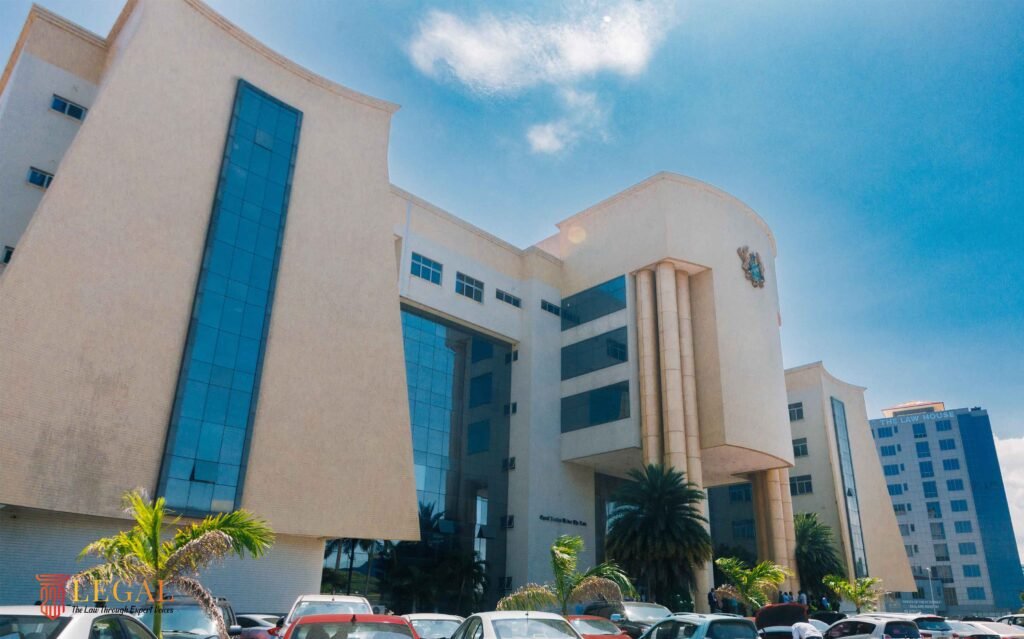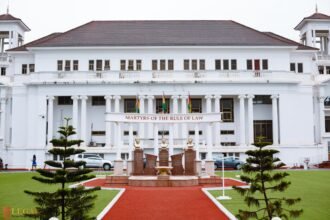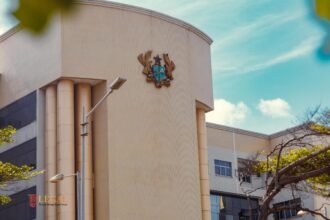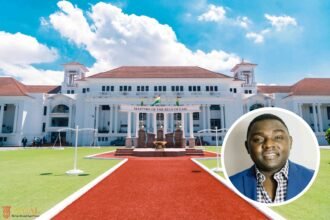
SUIT NO: F/CRA/AHC/15/2025
PATRICIA ASIEDUA – CONVICT/APPELLANT/APPLICANT
VS
THE REPUBLIC
DR. RICHMOND OSEI-HWERE J, This ruling is in respect of an application for bail pending appeal.
The applicant herein, Madam Patricia Asiedua alias Nana Agradaa is a pastor and the founder of Heaven Way Champions International Ministry. On 3rd July, 2025 she was convicted and sentenced by the Circuit Court, Accra. Prior to that, she was charged with one count of charlatanic advertisement contrary to section 137(1) of the Criminal Offences Act of 1960, Act 29 and four counts of defrauding by false pretenses contrary to section 131 of Act 29 (i.e. Counts 2 to 5). The applicant pleaded not guilty to all the five counts.
After a full trial, applicant was convicted on Counts 1, 2 and 3. Applicant was, however, acquitted and discharged on Counts 4 and 5. She was sentenced to a fine of 25 penalty units on Count 1 or in default 30 days in prison. In respect of both Counts 2 and 3, she was sentenced to a custodial term of 15 years in hard labour. The sentences are to run concurrently.
Aggrieved by the conviction and sentence, Applicant filed a Petition of Appeal on 7th July, 2025. The grounds of appeal are:
i. The conviction and sentence should be set aside as the judgment is unreasonable and cannot be supported by the evidence on record.
ii. The whole trial is wrong in law.
Particulars of error:
a. The trial judge denied the petitioner fair trial by calling her to prove her innocence when prosecution had led no or insufficient evidence, contrary to Article 19(2)(C) of the 1992 Constitution.
b. The trial judge demonstrated manifest bias and personal animosity towards the petitioner by persistently engaging in confrontations, harassment, and intimidation of the accused’s lawyers in open court thereby denying her adequate and effective representation.
iii. The sentence of 15 years IHL is harsh and excessive taking into consideration the circumstances of the case.
iv. Additional grounds to be filed upon receipt of the judgment.
On the 9th of July, 2025 the Applicant filed the present application for bail pending the determination of her appeal.
The application is backed by a forty-four (44) paragraph affidavit in support. By this application, the Applicant is praying the court that notwithstanding her conviction and custodial sentence, which has not been set aside, she should be at liberty to stay outside the prison until the final determination of her appeal. The mainstay of applicant’s case is that her appeal is likely to succeed as the trial judge failed to properly evaluate the evidence on record. Applicant is also saying that the trial judge was biased towards her and that the trial court failed to observe the rules relating to fair trial.
The Republic/Respondent is opposed to the application. In a seventeen (17) paragraph affidavit in opposition, the Republic has taken to the position that there is no likelihood of success of the appeal to warrant the grant of the application for bail pending appeal.
In his oral submission to the court, counsel for Applicant, Mr. Asare-Baffour relied on the affidavit in support of the motion and highlighted the three grounds upon which the application is premised.
On ground one, learned counsel submitted that having regard to the sentence, there is going to be a considerable delay either in preparing the record of appeal or hearing of the appeal is likely to delay resulting in the applicant serving the whole or substantial portion of her sentence before the appeal is determined. Counsel has submitted that since the accused is sentenced to 30 days imprisonment, in respect of Count One, the term began to run on the 03/07/2025 and that today being 15/07/2025 – it means the applicant has already spent 12 days in custody. Counsel’s position is that applicant would definitely spend the 30-day sentence by the time the appeal is heard, making the appeal process specifically relating to Count One, an exercise in futility if she is not granted bail.
On ground 2, learned counsel argued that there are exceptional or unusual grounds which warrant the success of the application. Counsel relied on the case of the REPUBLIC v HIGH COURT (CRIMINAL DIVISION 1, ACCRA) EX-PARTE STEPHEN KWABENA OPUNI, (Attorney General, Interested Party) Civil Motion No. J7/20/2021 dated 26/10/2021, where the Supreme Court took the view that an exceptional or unusual circumstance is created where there is a breach of the constitution or the statutes. In relation to the instant case, counsel argued that the case of the exceptional circumstance lies in the fact that the decision by the Trial Court to call on the Applicant to open her defence when the prosecution had not led evidence did not reflect the constitutional edict on how a fair trial should be conducted. Counsel referred to Article 19(2)(C) of the 1992 Constitution to buttress his point.
On the third ground, counsel submitted that the conviction is prima facie wrong and the appeal has obvious prospects of success. Counsel delved extensively into the evidence led by the prosecution and concluded that the trial court judge misdirected herself on the evidence when she convicted the Applicant.
In a rebuttal, the learned State Attorney, Mrs. Natalie Korkor Hammond argued that the appeal is not likely to succeed. She reminded the court that Applicant is serving a total sentence of 15 years due to the concurrent nature of the sentences handed down by the trial court. Thus, applicant has enough time to pursue her appeal and will not have served substantial portion of her sentence before the appeal is heard. Counsel relied on the cases of Fynn & Another v The Republic [1971] 2 GLR 433 and Issah v The Republic, Criminal Appeal (2001-2002) 1GLR at 128 and submitted that Applicant has not evinced exceptional circumstances for bail to be granted.
Section 33 (1) of the Courts Act of 1993 (Act 459) as amended vest this court with the discretionary power to grant bail pending the determination of the Applicant’s appeal. It provides as follows:
“The court before which a person is convicted or the court to which an appeal is made may if it thinks fit, on the application of an applicant grant the appellant bail pending the determination of his appeal.”
An application for bail pending appeal calls for the exercise of the court’s discretionary power and this power must be exercised judicially. In Fynn v The Republic supra, Taylor J (as he then was) stated the principles that should guide a Court in such application as follows:
- If there is an exceptional and unusual ground for the application;
- If the conviction is prima facie wrong and the appeal has obvious prospects of success;
- If the nature of the offence is such that the applicant should be free to confer with his counsel to facilitate the preparation of his appeal;
- If having regard to the sentence, the applicant is likely to serve the whole or substantial part of the sentence before the appeal is heard as a result of delay in either preparing the record of appeal or because of the long vacation.
The above principles were affirmed by the Supreme Court in Republic v Registrar of High Court; Ex parte Attorney-General [1982-83] GLR 407.
I have perused the processes on record and heard submissions of learned counsel for Applicant as well as the learned State Attorney and it seems to me that the application revolves around the likelihood of success of the pending appeal and the fact that the term of imprisonment relating to Count One would have been served by the time the appeal is heard and determined.
After perusing the grounds of appeal filed and the judgment of the trial court, it is my considered opinion that the likelihood of success of the appeal is not apparent on the face of the record. In the instant case, it is obvious that the appellate court has to examine the record to determine the outcome of the appeal.
The likelihood of success of an appeal can be said to be apparent on the face of the record if, for instance, the trial court had no jurisdiction to try the charges levelled against an applicant but went ahead with the trial and convicted the applicant. Also, if from the record there was a grotesque breach of the audi alteram partem rule leading to the conviction and sentence of the applicant, it would be palpably clear that the judgment is likely to be reversed on appeal. The list is certainly not exhaustive but it must be demonstrated in the likelihood of success of an appeal that the conviction is prima facie wrong.
In the case of Owusu v. The State [1967] G.L.R. 435, the Court of Appeal held that bail pending appeal should be granted “where the court is satisfied that the conviction is prima facie erroneous either in law or in fact and that there will be an apparent miscarriage of justice if bail is refused”.
Applicant is also alleging that the trial judge was biased against her. For me, this assertion is not obvious from the record before this court. Perhaps this assertion could be ascertained when the entire record of Appeal is placed before the Appellate Court.
Applicant was convicted on Counts 1, 2 and 3, therefore her assertions relating to Counts 4 and 5 do not on the face of the record affect the validity of the conviction. Applicant’s allegation relating a breach of fair trial rules cannot be sustained at this stage. This allegation requires thorough assessment when the appeal is heard.
A concurrent sentence means that multiple prison sentences are served at the same time, rather than a consecutive sentence – which is one after the other. What it means is that Applicant is faced with a total sentence of 15 years. There is no indication that the appeal would not be ready for hearing for some time and I do not think that taking into consideration the sentence of fifteen years the appeal would not be heard before a substantial portion of the sentence is served for me to exercise my discretion in favour of the applicant.
In Issah v The Republic, Criminal Appeal (2001-2002) 1GLR at 128, which was cited by the learned State Attorney, the applicant filed a notice of appeal that a conviction cannot be supported by the evidence adduced at the trial and that the trial judge erred in law, and also that the prosecution had not discharged its burden of proof beyond reasonable doubt. The court held that the imprisonment was lawful and will remain lawful even if the convict appeals to the Supreme Court.
Having failed to established that the conviction is prima facie wrong, it would not bode well for substantial justice for the court to grant Applicant bail pending appeal.
It is for the foregoing reasons that the application for bail pending appeal fails and the same is dismissed.
To ensure expeditious hearing of the appeal, I order the Registrar of the Circuit Court, Accra to furnish this court and counsel for Appellant/Applicant with the entire record of appeal within 14 days.
COUNSEL: ASARE RICHARD BAFFOUR WITH ALI ADAM AND
BERNARD KOFI ESSIBUAH FOR THE CONVICT/
NATALIE KORKOR HAMMOND WITH MAAME
KORANTEMAA ABOAGYE-DARKO FOR THE REPUBLIC
(ASSISTANT STATE ATTORNEY) – PRESENT











